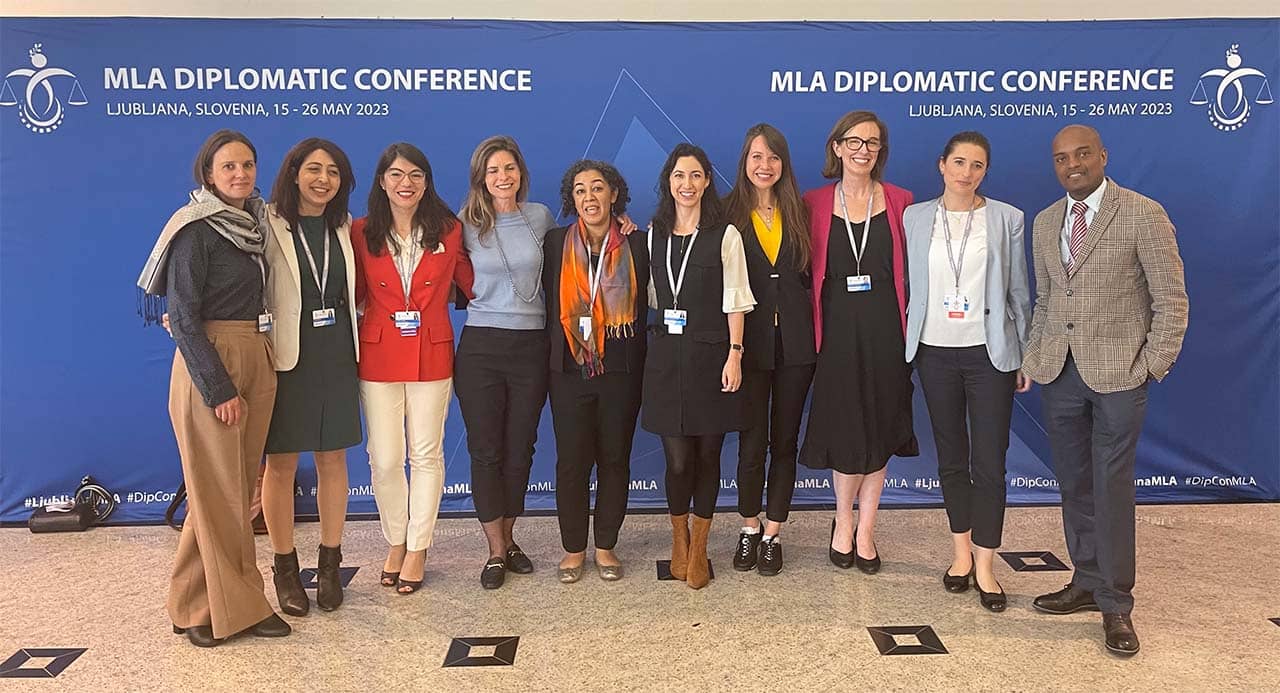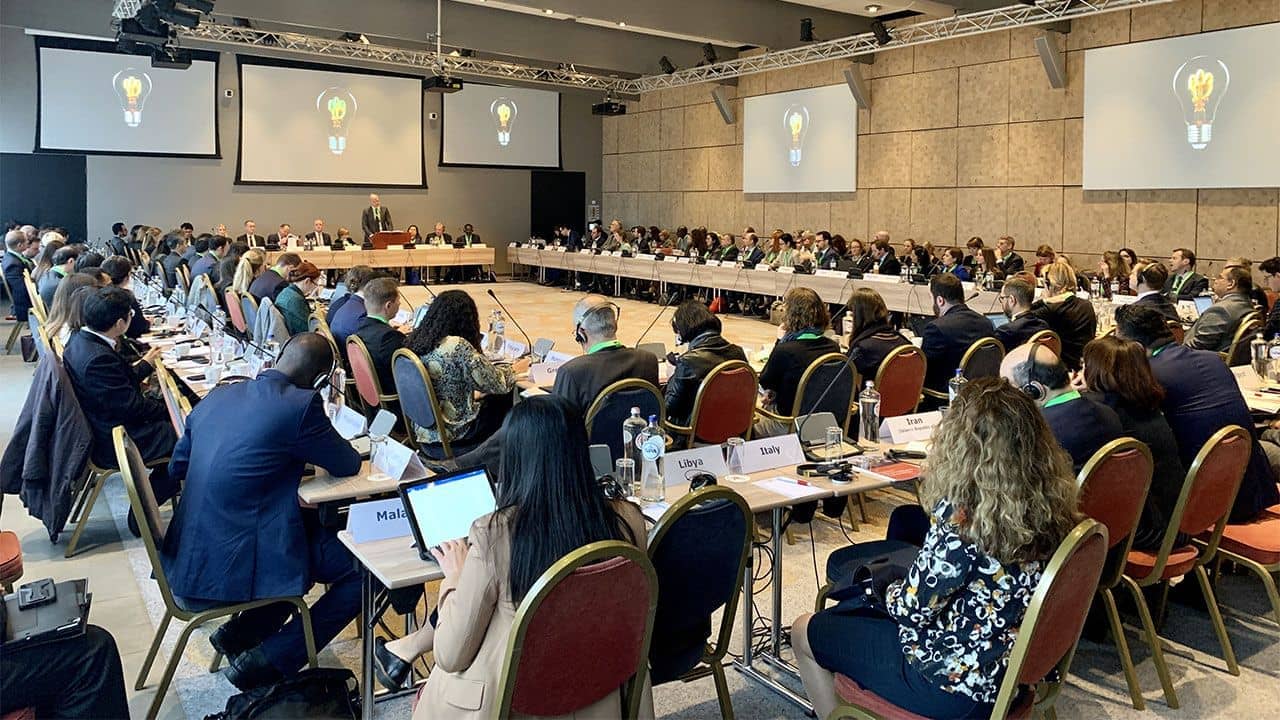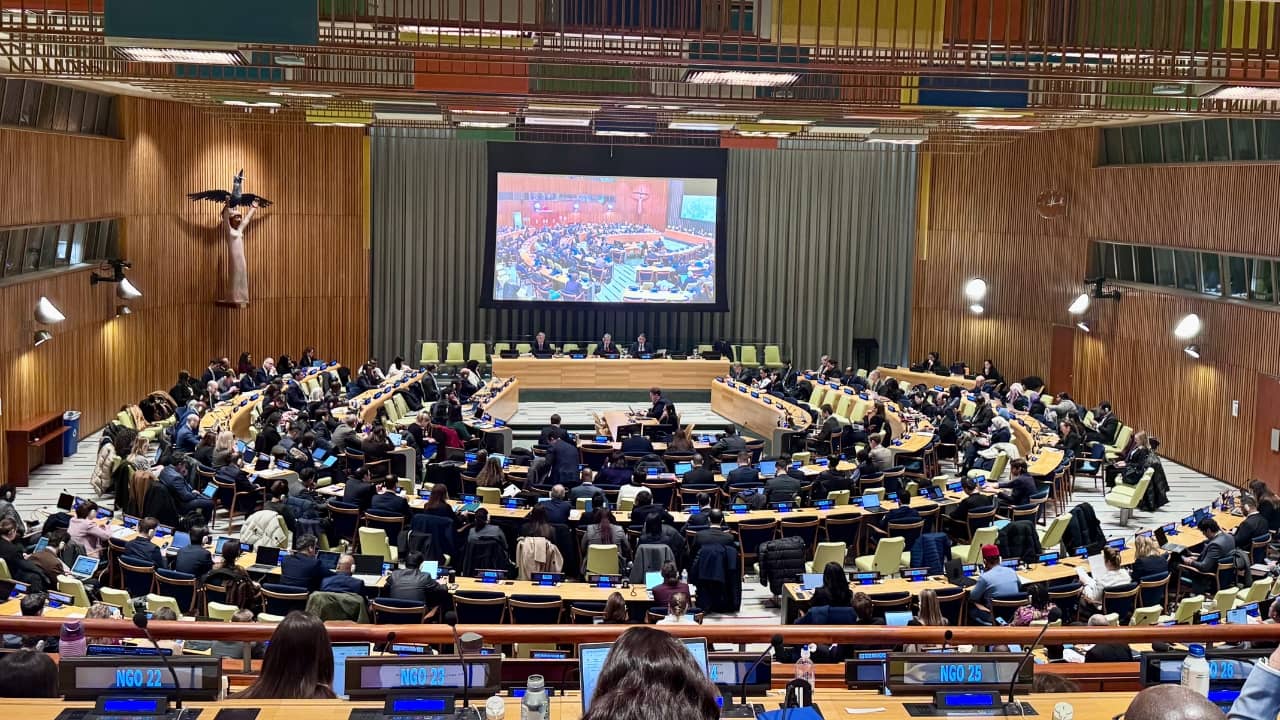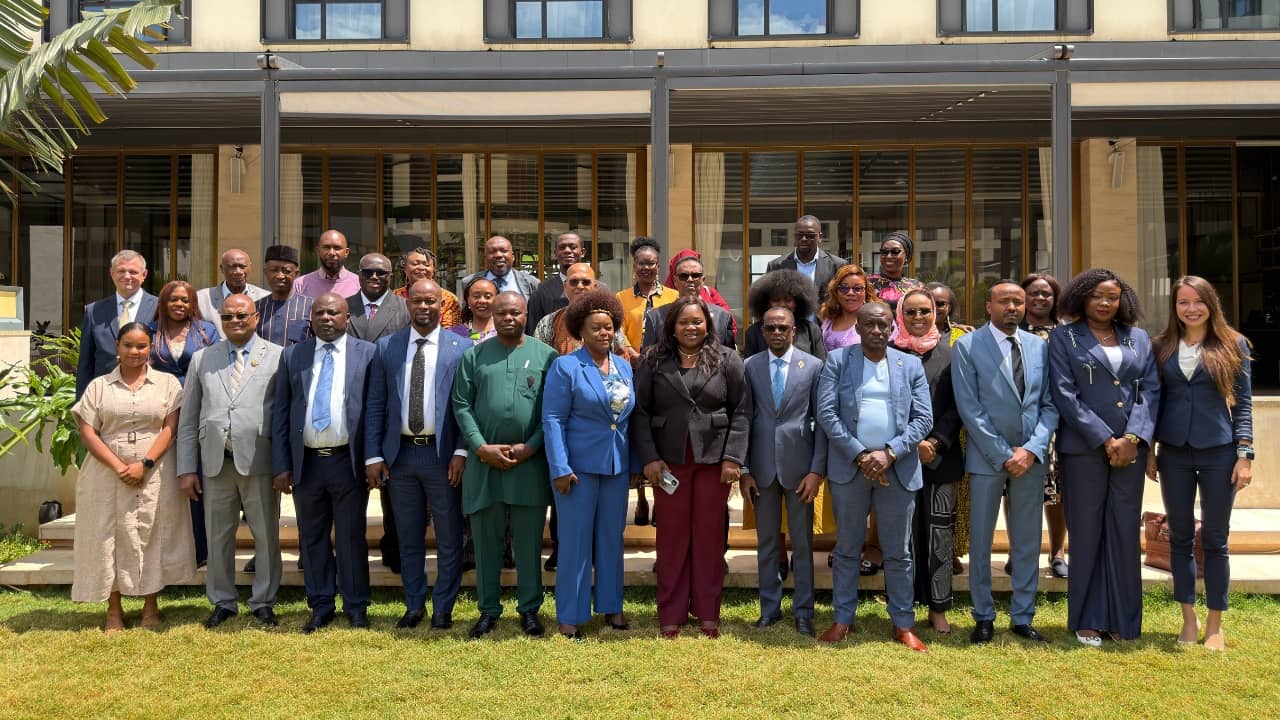
Ljubljana / The Hague
Parliamentarians for Global Action strongly welcomes the adoption of Mutual Legal Assistance Convention (The Ljubljana – The Hague Convention on International Cooperation in the Investigation and Prosecution of Genocide, Crimes against Humanity, War Crimes and other International Crimes) on 26 May 2023. The Convention represents a landmark international treaty that will help to deliver justice to victims of genocide, crimes against humanity, war crimes, as well as other international crimes. The adoption seizes a historic opportunity to strengthen international legal cooperation, and an important step towards the improvement of the effectiveness of domestic proceedings, aligned with the principle of complementarity.
The Ljubljana-The Hague MLA Convention was adopted by consensus at the 18th Plenary Session of the MLA Diplomatic Conference in Ljubljana, Slovenia, on 26 May 2023, which involved delegations from more than 70 states, international organizations and civil society, including PGA. The process was carried out independently, as a stand-alone process outside the United Nations or any other organization. The adoption of the Convention represented the final step in a process that started in 2011 by Argentina, Belgium, the Netherlands, Slovenia, later joined by Mongolia and Senegal.
 On behalf of PGA, I welcome the adoption of this important Convention. I trust that this great achievement towards closing the gap in effective cooperation among states will also significantly reduce impunity for perpetrators of core international crimes. Nevertheless, only worldwide ratification can close this gap that originally motivated the establishment of the MLA Convention. Therefore,I strongly encourage states to sign the Convention during the ceremony which will take place in the Hague in January 2024, and ratify it without reservations. Sen. Boris Dittrich (NL), Chair of the standing committee on Justice and Security in the Dutch Senate; Co-convenor of International Law and Human Rights Program and PGA Board Member
On behalf of PGA, I welcome the adoption of this important Convention. I trust that this great achievement towards closing the gap in effective cooperation among states will also significantly reduce impunity for perpetrators of core international crimes. Nevertheless, only worldwide ratification can close this gap that originally motivated the establishment of the MLA Convention. Therefore,I strongly encourage states to sign the Convention during the ceremony which will take place in the Hague in January 2024, and ratify it without reservations. Sen. Boris Dittrich (NL), Chair of the standing committee on Justice and Security in the Dutch Senate; Co-convenor of International Law and Human Rights Program and PGA Board MemberSen. Boris Dittrich
The Netherlands
The Convention clarifies and lays down states' obligations regarding legal cooperation and extradition in the investigation of crimes under international law. The international crimes are the three core Rome Statute crimes which are copy-pasted from the 1998 Rome Statute text (genocide, crimes against humanity and war crimes) plus eight optional annexes (including crime of aggression, five Rome Statute amendments on war crimes as well as torture and enforced disappearances as stand-alone crimes, i.e. outside of the framework of crimes against humanity or war crimes).
For the eight annexes, the application of the Convention is only activated if states opt-in (Art. 1(2)). States can also enter in ad hoc bilateral agreements (Art. 4) in case they would like to expand the application of the Convention to other crimes if all of these conditions are met: The conduct (i) is a crime of genocide, crime against humanity, war crime, crime of aggression, torture or enforced disappearance under international law as well as (ii) under the domestic law of the requesting State Party and (iii) the conduct is an extraditable offence under the domestic law of the requested State Party.
While strongly welcoming the adoption and the option to expand the scope of application of the Convention to other international crimes, PGA regrets that states did not use this opportunity to incorporate the post-1998 developments of international law, such as the crime of aggression, amendments on war crimes as well as stand- alone crimes of torture and enforced disappearances, in the main text of the treaty and only included them in the annexes as optional opt-in(s). On the other hand, PGA welcomes the obligation to criminalise the three core crimes within states’ domestic legislations (art. 5).
In the procedural part, the Convention also specifies reasons for refusal of cooperation as well as extradition, which also includes the threat of the imposition of the death penalty. The Convention contains other important provisions on assets freezing and role and rights of victims; outlaws the statute of limitations for the crimes in question; and improves language on gender in comparison to the Rome Statute.
Of particular relevance for the international law development is the provision on the inclusion of the obligation to extradite or prosecute for all the three crimes (Art.6(2)), imposing an obligation to “take such measures as may be necessary to establish its jurisdiction […] where the alleged offender is present in any territory under [a state’s] jurisdiction and [such state] does not extradite the alleged offender to any of the States [...], or surrender the alleged offender to a competent international criminal court or tribunal."
PGA welcomes the inclusion of this provision which enshrines a treaty obligation to extradite or prosecute genocide, crimes against humanity and war crimes, serving to minimize ‘safe havens’ for those responsible for these gravest crimes and to fulfil the victims’ right to remedy.
Nevertheless, as this obligation was opposed by some states, a new provision (Art. 85) was incorporated into the Convention, enabling reservations “limiting the establishment of [states’] jurisdiction under Art.6(2). PGA therefore calls on states not to submit reservations on this provision.
The remaining step to turn this achievement into real practice is to ensure worldwide ratification of the Convention. PGA therefore calls on all states to sign and ratify the Convention and, to ensure its most effective application, to ratify the Convention without reservations.







